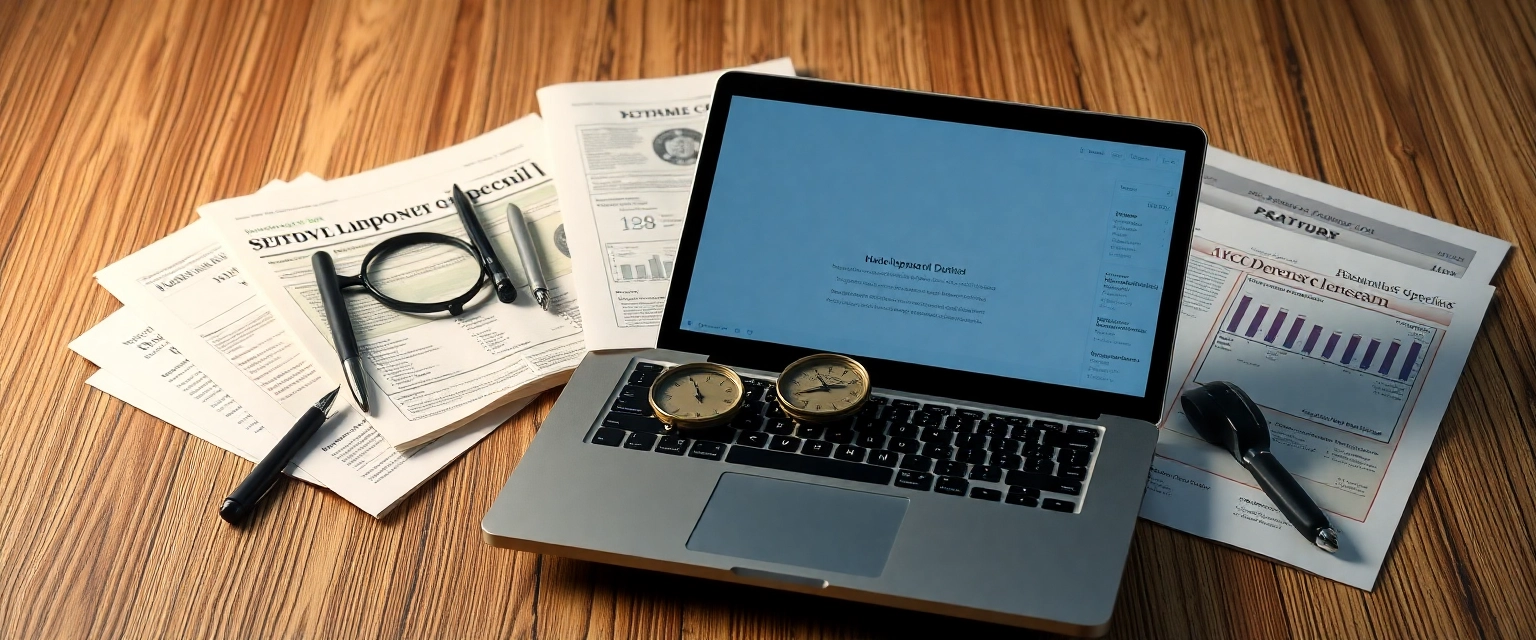Discover the secrets: How AI is revolutionizing financial audits in 2023

Introduction
Brief Context
Financial audits stand as the bedrock of trust in fiscal transactions. These meticulous processes evaluate a company's financial statements, ensuring they are free from material misstatements and that they comply with the regulatory landscape. Think of it as the watchful eye guarding the treasury of an organization. Yet, amid constant fluctuations in the market and evolving regulations, accuracy and compliance take on new dimensions, making the auditor's role increasingly critical. In a world where financial audits hinge on precision and adherence to standards, every figure counts.Why This Topic is Important
Today's financial data isn't just large; it’s gargantuan, growing like an unchecked weed in a garden. Organizations now grapple with an avalanche of information—transaction records, invoices, compliance reports—all clamoring for attention. This complexity ripples into every corner of the financial world, propelling the need for innovation. Enter technology in finance, a dynamic partner that promises to streamline processes and heighten accuracy. But how? That's where the magic begins.Current State of Financial Audits
Traditional Audit Processes
For years, auditors relied on traditional methods. Picture an auditor pouring over mountains of paper, navigating through manual reviews and sampling methods, armed with a green pen and an unwavering resolve. These pre-AI techniques, while foundational, are often time-consuming and fraught with the potential for human error.What about sampling, you ask? It's like trying to determine the quality of a wine by tasting a sip; you're making judgments based on a tiny fraction of the whole. With traditional audit processes, the stakes feel alarmingly high—one overlooked discrepancy can have ripple effects, leading to misstatements that undermine an organization’s fiscal integrity.
Challenges Faced by Auditors
Yet, it’s not just about the numbers; there’s an emotional toll tied to the job. As auditors sift through piles of data, they battle challenges—fraud detection feels almost like a shadowy game of hide and seek. High-stakes financial environments add layers of stress and complexity in risk management.The aftermath of regulatory changes can be tumultuous, akin to navigating a ship through choppy waters. Keeping up with evolving compliance requirements is an endurance test in itself. Without robust tools and processes, auditors can feel like they’re steering a leaky vessel amid a storm.
The Rise of AI in Financial Audits
Introduction to AI Technologies in Finance
Then, like a knight in shining armor, AI gallops onto the scene. With technologies such as machine learning, natural language processing, and data analytics, financial audits are.Imagine a system processing thousands of transactions, spotting trends and anomalies in a nanosecond—AI technologies changing the game entirely. No longer is the auditor just a number cruncher; they become a decision-maker, armed with insights gleaned from data.
Advantages of Using AI in Audits
So, what’s the allure of employing AI in audits? Let's talk benefits—efficiency, my friends. AI tools streamline the auditing process, reducing the time spent on mundane tasks and allowing auditors to focus on strategic analysis.With automated data analysis, accuracy isn’t just a goal; it becomes a possibility. The human element isn't erased but enhanced; the back-and-forth dance of data and insight transforms the outdated rhythm into a modern symphony.
If efficiency means working smarter and not harder, then AI is the coach we all need. Just imagine the difference that could make: instead of hunting for a needle in a haystack, you’re equipped with a magnet to pull it out effortlessly.
How AI is Transforming Key Audit Processes
Data Analytics and Risk Assessment
Ready for the next logical step? Let’s delve into the realms of data analytics and risk assessment. AI is on the front lines, parsing through colossal datasets to identify potential risks.Consider this: AI algorithms trained to detect anomalies can uncover irregularities that might slip by human eyes. It's almost like having a finely-tuned organ that can hear the slightest discord in an otherwise harmonious symphony. Those pesky discrepancies, which once hid in shadows, now shiver under the analytical spotlight.
Continuous Auditing with AI
But why stop there? The introduction of continuous auditing brings a new cadence to financial oversight. Imagine receiving real-time insights and updates—like having a personal assistant who feeds you information about your financial health as it happens.This fluid approach uncovers issues before they snowball into unmanageable problems, allowing auditors to act swiftly and decisively. If traditional audits were akin to a snapshot, continuous auditing becomes a flowing video—capturing each moment, each change, with breath-taking clarity.
Case Studies: Successful Implementation of AI in Audits
Big Four Firms and Their AI Strategies
Now, let’s bring our focus to the giants—the Big Four firms. Deloitte, PwC, EY, and KPMG have each embraced AI with open arms, not merely as a nifty tool but as a transformative force. Each has developed tailored strategies that weave AI into the fabric of their auditing processes.Deloitte, for example, has rolled out its “Greenhouse” program, utilizing AI to enhance collaboration and problem-solving within audits. This initiative combines data analytics with innovative practices, creating a dynamic environment where auditors can thrive. Meanwhile, PwC’s “Halo” data analytics platform analyzes transactions in real-time, significantly boosting the efficiency of audit processes.
These examples are not just case studies; they are a testament to how AI fosters a culture of innovation and efficiency in auditing. Firms leveraging AI are not just scrambling to keep pace—they're setting the pace.
Real-World Impacts of AI in Financial Audits
What does all this mean in real terms? Statistically, AI's impact is palpable. Firms implementing AI-driven methodologies have reported reductions in audit duration by up to 30%. It’s as if they’ve found a hidden express lane on a notoriously congested highway.Auditors have shared their testimonials, highlighting how AI integration has liberated them from mundane tasks, allowing them to engage in more strategic conversations. One auditor mentioned, "With AI, I spend more time solving problems rather than sifting through endless spreadsheets. The change is invigorating."
The real-life implications of these transformations underscore the power of AI in enhancing audit efficiency and accuracy. It's becoming increasingly clear that the fusion of human intuition and AI's analytical prowess is a game-changer.
Conclusion of Part One
Summary of Key Insights
As we explore how AI is changing the financial audit landscape, it becomes evident that these technologies offer solutions to age-old challenges. By harnessing AI, auditors can tackle complexities with increased precision, easing the burden of risk management, and fraud detection.The future looks promising for audit processes; technology is not an adversary but an invaluable ally. As we continue to embrace AI, the implications stretch far and wide.
Looking Ahead
What does the horizon hold? Expect rapid developments in AI applications tailored for audits. Continuous learning and adaptation will be crucial—not just for technology but for auditors themselves. Training will evolve, focusing on enhancing human judgment complemented by machine intelligence.In this space, services like AI Accountant emerge as essential partners for professionals in accounting. By providing instant access to laws and regulations, this platform automates mundane inquiries and streamlines workflows. It's more than a tool; it's a comprehensive resource that empowers accountants to focus on strategy and insight, rather than getting lost in the minutiae.
While AI offers incredible advantages, it also necessitates a commitment to ethical considerations and governance. Balancing the technological advances with solid oversight will be vital as we navigate this new terrain.
In conclusion, embracing AI isn’t just about staying ahead; it's about reshaping the very essence of what it means to conduct financial audits. As we stand on the cusp of this exciting transformation, the future invites us to innovate, adapt, and thrive.


